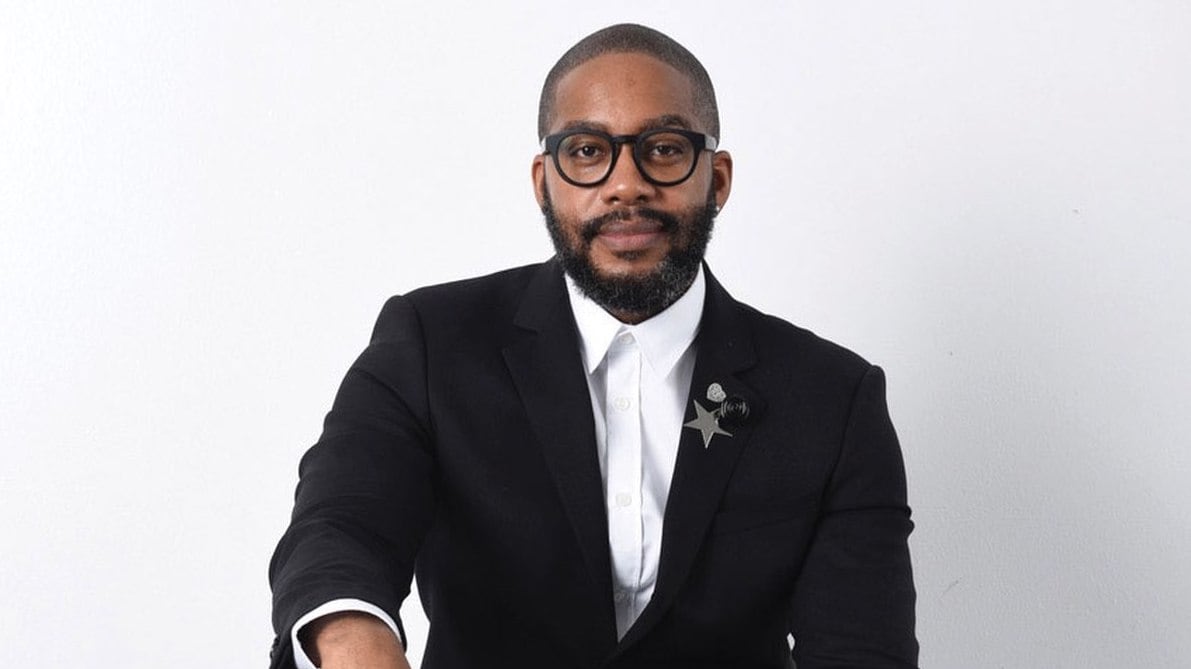The Northeast Portland that author Mitchell S. Jackson grew up in was characterized by a dead body in Overlook Park, young men selling crack on corners of Going, Mason and Jessup streets, and Bloods and Crips dressing down for Benson High School football games.
In the late '80s and early '90s, Northeast Portland was a neighborhood ravaged by years of systemic inequalities and new, cheap cocaine supplied by CIA-backed Contras. It's a time and place Jackson has explored before in his critically acclaimed debut novel, 2013's The Residue Years.
But in his newest work, Survival Math: Notes on an All-American Family (Scribner, 336 pages, $26), Jackson explores his coming of age through a series of essays about his upbringing. Topics include pimping techniques, plasma donation, run-ins with the law, and the myriad ways in which Jackson has psychologically "tortured" women. With cultural references ranging from Audre Lorde to Adam Smith, Jackson depicts the desperate measures people turn to when they are pushed to society's very margins, as well as the joys, triumphs and love they find therein.
Out of Survival Math comes not just a portrait of a man, but a portrait of a family. "I wanted to challenge the notion of what family means," says Jackson. "The fact that there are broken homes, or the fact that I grew up among a number of people who were from broken homes is not coincidental."
WW talked to Jackson about Northeast Portland, his legacy and monuments.
WW: What was Northeast Portland like during your youth?
Mitchell S. Jackson: Northeast Portland felt like a community. Most of the people I saw were black in the neighborhood. If I didn't know them, then I knew a cousin or a brother or an uncle. It was like a place where you could be somewhere and adults would know who your parents were. But it was also, by the time I got to be 10, 11 years old, a place that got kind of dangerous because of the drugs that came into the community. When the drugs came, so did the gangs. And that was really my era of teenagers and young men who made it a dangerous place.
Did you make it dangerous?
Yeah, I ended up making it a dangerous place by selling drugs. But I think as far as violence, I didn't perpetrate any violence against anyone. I was pretty adamant against guns, and I wasn't shooting people.
You included a chapter of your book detailing the ways in which you've wronged women—at one point, you describe it as "torture." Why did you include this?
I wanted to investigate it for myself to kind of understand those things. For someone else who's still kind of living that kind of life to see a reflection of themselves, to ask some questions. At some point, I think my children will read this and try and reckon with my legacy. So there are a lot of reasons, first for myself, for my children and then for someone who is caught up in these kind of pathologies.
What became of the people you grew up with?
My father still lives in Northeast. My brother lives in Northeast. So I think they're there, it's just more spread out. A fair share of the guys I grew up with had some kind of criminal justice involvement, or some kind of struggle, whether it was trying to get a job or dropping out of college. But then I also had a collection of friends who all went to college and all got really good jobs and all own homes. One of my best friends is a guy named Patrick Strickland, who's the [boys' basketball] coach at Jefferson High School. Another friend of mine is Damon Stoudamire.
In the book, you describe the new buildings on Williams Avenue as "monuments to privilege." Can you explain what you meant by that?
Every other block, there's a new Kaiser building going up. There are duplexes and triplexes. It does not seem like they are building those to court people of color. When I see a new place go up and it's six or $700,000 in place of a place that, when I was growing up, was $40,000, I think, "Oh yeah, this is a symbol of the kind of change people want and the class of people Portland wants to see inhabiting its inner city."
What do you hope people take away from Survival Math?
First is that we exist. And by that I mean African-Americans in the Northwest, particularly in Portland and Oregon. I feel like every time I go somewhere and I say I'm from Portland or from Oregon, they're like, "I didn't even know you all were there." And then I also think that because we don't have a presence in the national consciousness, they also kind of don't know the struggles we have.
I'm writing for a younger version of myself, so like a 25-year-old Mitchell, who is aware of what is happening in depressed communities. But then he's also curious enough to kind of approach some of the more intellectual ideas or references I have. And then, I also know there's a class or race that is going to read this and I have to ensure I don't lose them. I don't want to lose the literary crowd, so there are certain things I might have to contextualize that I wouldn't have to for another audience. So, essentially, I'm writing for myself, because I exist in both of those worlds, but I'm neither in one world or another.
READ IT: Survival Math will be published March 5.

Five of Portland's Best Visual Arts Shows to See This Spring
Five Portland Performances You Shouldn't Miss This Spring
The Five Best Dance Productions to See in Portland This Spring
"Survival Math" Chronicles the Crime and the Community of Northeast Portland in the Late '80s
